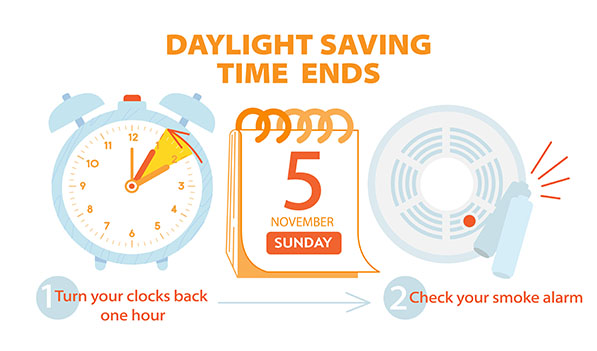This Sunday, November 5, most people will enjoy the extra hour of rest as daylight saving time officially ends at 2 a.m. — but there are some workplace-related things to keep in mind. For starters, some employers — especially those with graveyard shifts — need to make sure they pay employees correctly this weekend, and next week, workers may need to be extra careful on their commutes.
Remember employees must be paid for all hours actually worked, regardless of what the clock says. So, this coming Saturday night, if employers want to avoid paying overtime to an employee who typically works from 11 p.m. to 7:30 a.m., they’ll need to make sure that the employee either starts work an hour later or ends work an hour earlier so the total shift is eight hours (with a half-hour meal break).
Why is that? Because if an employee begins work this November 4 at 11 p.m. and ends work the next day at 7:30 a.m., they will — thanks to “falling back” an hour at 2 a.m. — work a total of nine hours (with a half-hour meal break), resulting in one hour of overtime pay.
And time-shift troubles don’t end there! The end of daylight saving time causes traffic collisions between deer and vehicles to increase 16 percent in the week following the time change, according to a recent study. Traffic accidents tend to peak in late October and November as workers have less sunlight and visibility on their commutes (plus, these months are also deer-mating season, so the creatures are much more active).
If the U.S. moved to a permanent daylight saving time, the same study showed that it would prevent 2,054 human injuries, 22 human deaths and $1.19 billion dollars in damages each year (though a permanent move to standard time would increase crashes by 3.5 percent).
So, while proposed legislation to establish a permanent daylight saving time nationwide has stalled in Congress, employers need to make sure they’re paying their employees correctly for any extra time worked during the time change — whether it’s paying overtime or adjusting employee schedules.
Keep an eye out for deer on your commute for the next few months, and enjoy that extra hour of sleep on Sunday
